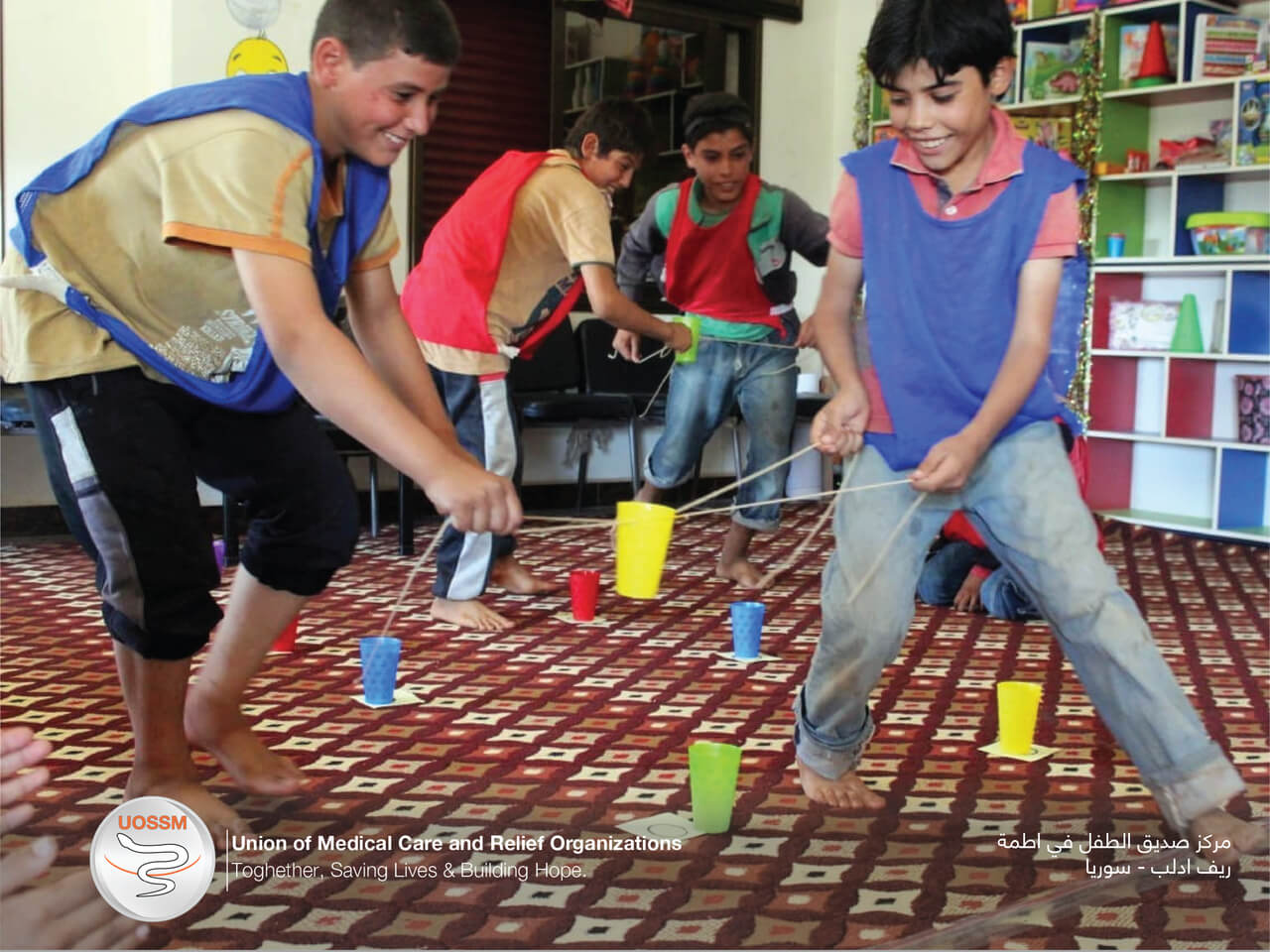Due to the lack of Syrian psychiatrists, (only one psychiatrist remains in northwest Syria at UOSSM’s MHPSS referral center), a tele-referral service was established, to address the high demands and needs. This Tele-Psychiatry service continuous to support the work of UOSSM’s psychiatrist in Syria and provides the technical support needed.
To build and improve MHPSS work strategies, UOSSM coordinates with a variety of partners in different sectors, led by different UN agencies, and plays an important role in these sectors. Because of UOSSM’s expertise with wartime mental health concerns, UOSSM participated in in the design of a specialized psychosocial support guide, in partnership with WHO, that is being deployed to all social workers in Syria. The guide includes many skills, techniques, and programs that are necessary in approaching mental support.
In addition, UOSSM was elected to serve on the technical advisory committee for the mental health sector for Syria in Turkey and worked with the UN Refugee Agency initiative to establish communication between protection and mental health sectors. While UOSSM offices in Turkey support programs in Turkey and Syria, UOSSM USA operates through its regional office in Jordan to provide essential services in Jordan and Gaza.
Training on World Mental Health Day by the only psychiatrist in northwest Syria at UOSSM Mental Health Center.
Training and capacity building in the MHPSS program include:
Some specialized training courses, designed under World Health Organization (WHO) include:
Mental Health Gap Bridging Program (MH-GAP)
Special training in psychiatry provided to general practitioners to cover the gap of lack of psychiatric specialists in northern Syria.
Training MHPSS workers on:
UOSSM Al Bab Mental Health and Psychosocial Support Center.
UOSSM currently operates the following centers in north Syria:
The only Inpatient Acute Mental Health Unit of 20 beds in northwest Syria.
The major Outpatient Referral MHPSS Clinic in northwest Syria.
In 2017, UOSSM developed protection interventions focusing on Child Protection (CP) and preventing and responding to Gender-Based Violence (GBV). The program is aimed to enhance the protection of at-risk groups from the effects of conflict, including, but not limited to, protection activities that are specifically designed to prevent and respond to rights violations.
UOSSM builds local capacity in many areas, including psychological first aid, child protection case management, family tracing and reunification, parenting skills training, and protection monitoring. UOSSM participates in the protection sector working group in northern Syria and coordinates with staff to discuss challenges and develop solutions. UOSSM also participates in family reunification and child labor working groups, focusing on the development of intervention and response strategies.
UOSSM’s protection interventions are developed in accordance with standards and guidelines internationally recognized by UNICEF, UNFPA and UNHCR. Since 2017, UOSSM has provided protection services to tens of thousands of people, primarily women and children in north Syria.
UOSSM’S protection services fall into the following categories:
UOSSM promotes Child Protection (CP) through:
Structured and sustainable psychosocial support programs within child-friendly centers.
Awareness campaigns on children's rights and protection concerns, plus establishing community-based child protection committees trained on child protection standards and referral mechanisms.
Awareness campaigns on land mines, ordinances, and explosive material risks.
Parenting Skills Programs. Although, the children are the target group for most services, there are specific guiding programs for the parents to ensure continuity of childcare, after children leave UOSSM facilities.
Community awareness and psychosocial support.
Publicizing available services to activate conversion mechanisms in targeted areas.

Women’s empowerment also falls under the umbrella of protection services. The program not only includes Gender-based Violence (GBV) prevention and response, but also includes the following skills development activities to empower the women and girls in their community:
Psychosocial support
Awareness of protection issues
Specialized services through case management
Skills development activities such as sewing and basic principles of reading and writing
UOSSM provides protection services in north Syria:
Protection services are provided at UOSSM’s MHPSS center and mobile units, and through UOSSM’s specialized Protection Centers:
Three child centers
Five community centers
One facility specifically for women and children